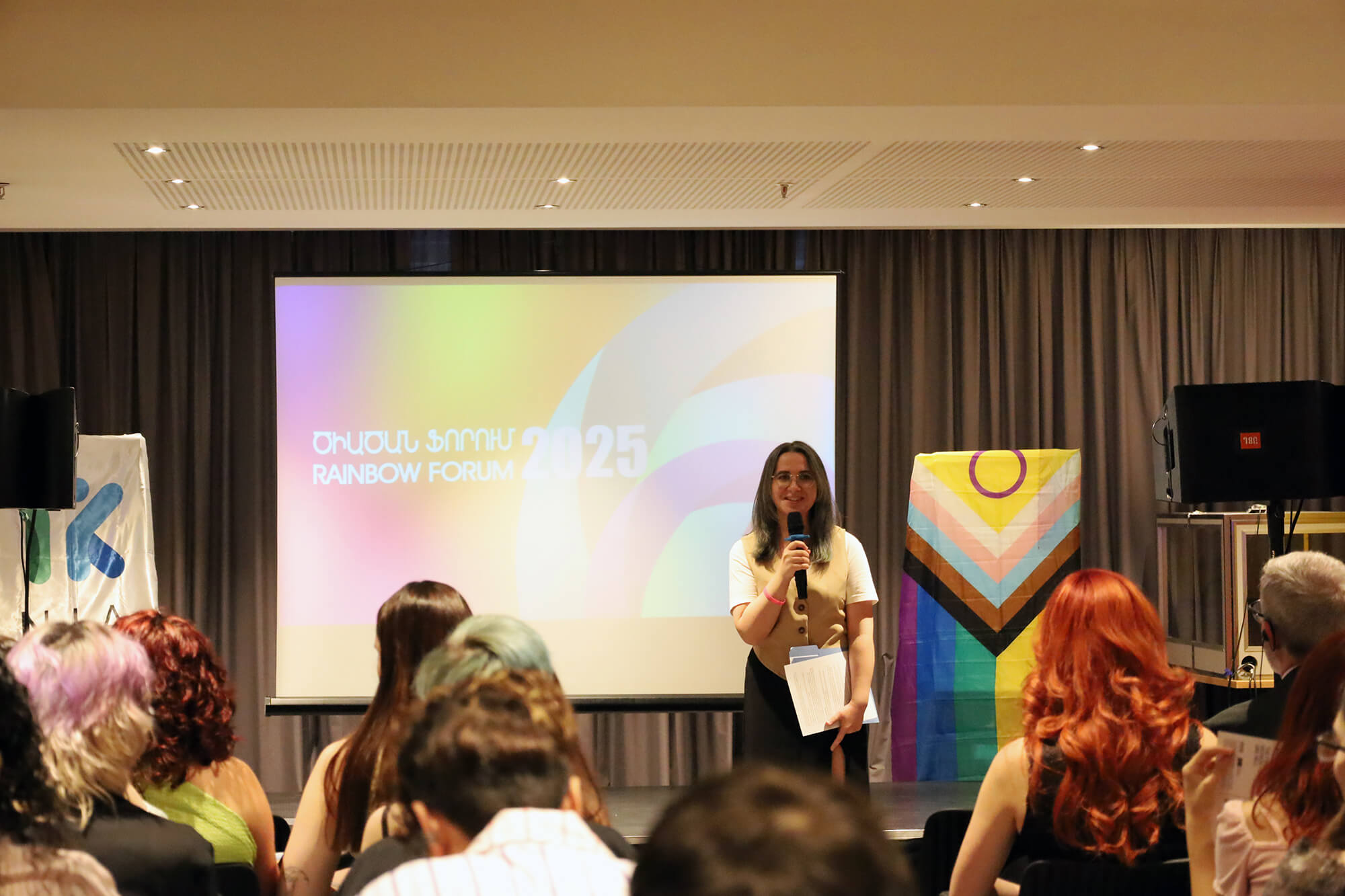Application submitted to ECtHR on the case of violence against a trans woman
Crimes committed against trans people in Armenia continue to go unpunished. Every year, many cases of violence are being recorded, which are accompanied by a critical attitude of the society, on the one hand, and improper handling of criminal cases by law enforcement agencies, on the other hand, as a result of which, the number of crimes increases and perpetrators remain unpunished.
A case of violence against a trans person in 2018 remains unpunished. On February 28 of the same year, a trans woman named Zh. A. provided sexual services to her male client. After that, the man offered the trans woman to have sexual intercourse with him again, and having been rejected by the woman, he got upset and started an argument with the latter in the apartment. Then, he went out onto the porch and deliberately pulled the victim and pushed her down the stairs, after which he hit her with his hands on the head and various parts of the body, trying to kill her. After that, he returned to the apartment and, to clean up the traces of the crime he had committed, set the apartment on fire and left.
As a result of the violence, the trans person received life-threatening injuries.
On February 28, 2018, in the investigative department of the administrative districts of Kentron and Nork-Marash of Yerevan, a criminal case was initiated under Part 1 of Article 112 of the Criminal Code of the Republic of Armenia. On March 2 of the same year, the trans person was recognized as a victim, and the accused was arrested, but the next day, by the decision of the prosecutor’s office, he was released.
It turns out that the investigating authority filed a criminal case under an article providing milder liability while there was an attempt to kill the victim. Furthermore, the perpetrator had announced during his testimony that he committed the crime after finding out that the sex worker was a trans person, which must be considered an aggravating circumstance for a crime and punishment.
As a result of an incomplete study of the episodes of the arson of the apartment and the concealment of traces, the preliminary investigation body did not assess these factors while qualifying the crime. The indictment was sent to the court with a charge of grievous bodily harm. As a result, the accused was sentenced to three years and six months in prison, but an amnesty was applied to him, and the perpetrator was not imprisoned. The man who tried to kill the trans woman was not subjected to liability proportionate to his act to realize that what he had done was a crime.
Despite numerous complaints, the perpetrator was not called to liability. Having exhausted the possible national judicial instances, the representative of the victim’s interests, lawyer of Pink Ara Karagyozyan, filed an application to the European Court of Human Rights.
This case is of strategic importance. By filing complaints and appeals to the RA courts on individual cases and then to the European Court of Human Rights, Pink human rights defender NGO seeks to raise the issue of the incompleteness of legal norms and legal gaps, other problems in law enforcement practice, and try to bring them to international courts to find solutions through observations of international courts, as well as to raise public awareness. As a result of the formation of judicial precedents, it will be possible to achieve changes not only in the legal but also in the social and political spheres.
The issue of hate crimes based on a person’s sexual orientation was raised before the national courts. However, the court didn’t consider the claims of the victim. The courts did not refer to the motivation of the perpetrator, and no investigation into this matter was conducted.
States are obligated to protect a person’s physical and mental integrity from attacks by other people. In this case, the state, being aware of the systemic nature of hate crimes towards LGBT people, failed in its duty to protect Zh. A. from attacks by another person. That is why, in this case, on July 12, 2022, an application was submitted to the European Court of Human Rights.
The applicant Zh. A. litigated violation of her right to a fair trial, the right to respect for private and family life, and the right to be free from discrimination recognized by the European Convention on the Protection of Human Rights and Fundamental Freedoms.




